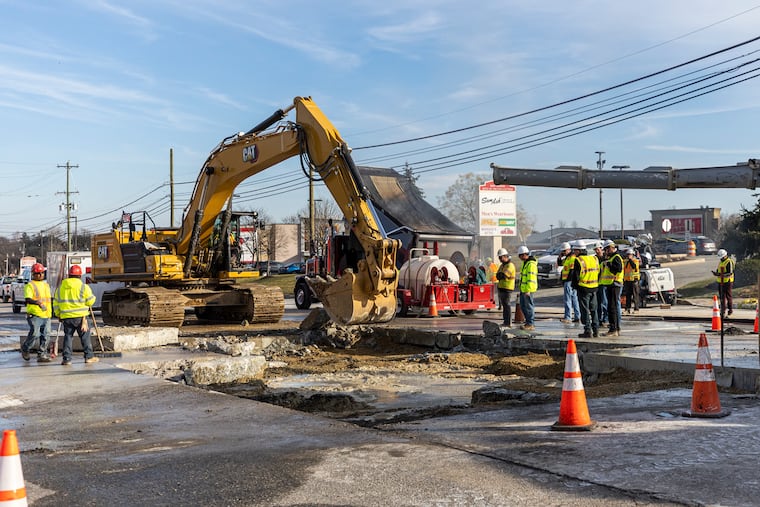Traffic on Route 202 in King of Prussia is again disrupted by a sinkhole
It was not known how long the repairs would take. This is the third time this has happened since July.

For the third time in nine months, a sinkhole depression is disrupting traffic on a heavily used section of Route 202 in a busy shopping area of King of Prussia.
PennDot closed the northbound left lane between Henderson Road and Saulin Boulevard early Wednesday morning for the repair operation and expected to close a southbound lane on Thursday, said spokesperson Brad Rudolph.
It was not known how long the closures would remain in place, and a complicating factor was the forecast of showers that could continue into Thursday morning. “The rain won’t help when we need to pave,” Rudolph said.
PennDot advised drivers in the area — where traffic often is congested even in the absence of sinkholes — to expect delays, but it said access to local businesses would remain available.
The latest depression developed in the northbound travel lanes in the same area that was affected by sinkholes in July and December.
» READ MORE: Route 202 has another sinkhole. Why does this keep happening in King of Prussia?
That particular stretch of road is especially prone to sinkholes — far more problematic than freeze-thaw potholes — because it is situated on what geologists refer to as “karst,” underlain by limestone, which is easily damaged by water.
PennDot crews have been trying to identify the source of the water that is causing the issues.
“The geological layout of this area is challenging,” Rudolph said. “They’re looking for any kind of water infiltration to figure out what is going on here.”